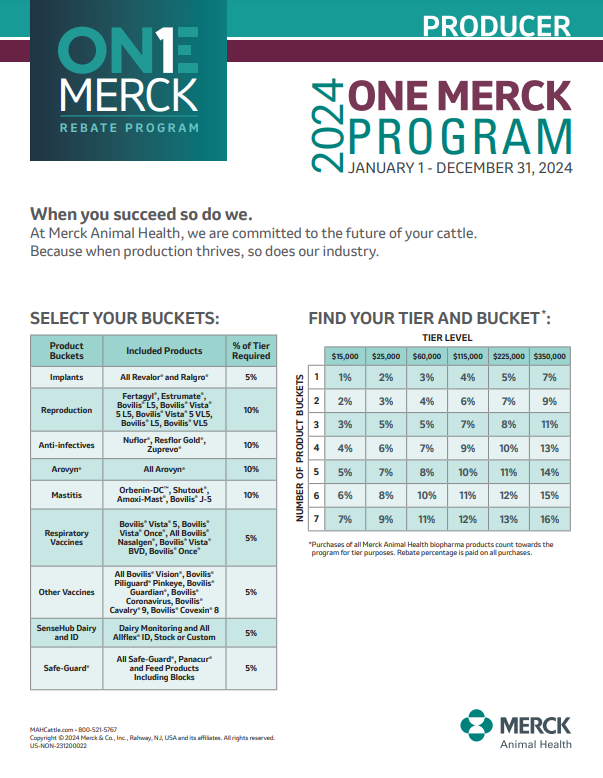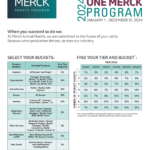In today’s ever-evolving healthcare landscape, pharmaceutical companies often employ various strategies to make their medications more accessible and affordable to consumers. One such strategy is the implementation of rebate programs. Among these, Merck, a leading pharmaceutical company, has been known for its robust rebate programs aimed at providing financial relief to patients and healthcare providers.
Merck Rebates
Understanding Pharmaceutical Rebate Programs
Pharmaceutical rebate programs are essentially agreements between drug manufacturers and other entities, such as pharmacy benefit managers (PBMs) or insurers. These agreements involve discounts or refunds provided by the manufacturer to the payer in exchange for preferred placement on formularies or increased utilization of their medications.
Importance of Merck Rebates in 2024
In 2024, Merck’s rebate programs hold significant importance in the pharmaceutical landscape. They play a crucial role in facilitating access to essential medications while also ensuring the company’s competitive edge in the market.
Evolution of Merck Rebate Programs
Historical Overview
Merck has a long history of implementing rebate programs as part of its market strategy. These programs have evolved over the years to adapt to changing market dynamics and regulatory requirements.
Changes and Innovations in 2024
In 2024, Merck has introduced several changes and innovations to its rebate programs to better meet the needs of patients and healthcare providers. These may include revised eligibility criteria, updated rebate structures, or enhanced benefits.
Eligibility Criteria for Merck Rebates
Qualifying Products
Merck rebate programs typically apply to a range of medications across various therapeutic areas. Eligibility criteria may vary depending on factors such as the type of medication and the intended patient population.
Participant Requirements
To participate in Merck rebate programs, healthcare providers or entities may need to meet certain criteria, such as volume commitments or adherence to specific prescribing practices.
How to Apply for Merck Rebates
To apply for Merck rebates in 2024, follow these steps:
- Gather Documentation: Collect all necessary documents such as proof of purchase, patient demographics, and any other required information.
- Visit the Designated Portal: Access the designated online portal for Merck rebate programs. This portal is likely to be available on the official Merck website or through a dedicated rebate management platform.
- Create an Account (if necessary): If you haven’t already, create an account on the portal. You may need to provide basic information such as your name, email address, and possibly professional credentials if you are a healthcare provider.
- Complete the Online Forms: Fill out the required forms accurately and completely. Be sure to double-check all information before submitting to avoid delays or errors.
- Upload Documentation: Scan or photograph your documentation and upload it through the portal as per the instructions provided. Make sure the documents are clear and legible to facilitate processing.
- Submit the Application: Once you have filled out the forms and uploaded the necessary documents, submit your application through the portal.
- Confirmation: After submitting your application, you may receive a confirmation email or notification acknowledging receipt of your submission. Keep this for your records.
- Follow-Up: If necessary, monitor the status of your rebate application through the portal. You may also receive communication from Merck regarding the status of your application or any additional steps required.
By following these steps and ensuring that all required documentation is provided accurately, you can successfully apply for Merck rebates in 2024.
Benefits of Merck Rebates
- Cost Savings for Consumers: These programs can lead to substantial cost savings for consumers. By providing rebates on medications, Merck helps make essential treatments more affordable and accessible to patients, easing the financial burden associated with healthcare expenses.
- Financial Incentives for Healthcare Providers: Healthcare providers who participate in Merck rebate programs may enjoy financial incentives. These incentives could include discounts on medications purchased for their patients or rewards for prescribing certain Merck products. By offering such incentives, Merck encourages healthcare providers to prioritize the use of their medications, ultimately benefiting both patients and providers.
Merck rebate programs in 2024 aim to enhance affordability, accessibility, and utilization of medications, fostering better health outcomes for patients while supporting healthcare providers in delivering quality care.
Challenges and Limitations
Merck’s rebate programs for 2024 may encounter certain challenges and limitations:
- Complexities in Rebate Structure: The structure of rebate programs can be intricate, making it challenging for both consumers and healthcare providers to fully grasp their benefits and limitations. Understanding eligibility criteria, submission requirements, and the timing of rebate disbursements may require significant effort and attention to detail.
- Regulatory Compliance Issues: Compliance with regulatory requirements, including anti-kickback statutes and transparency laws, is paramount for companies like Merck managing rebate programs. Ensuring that these programs adhere to relevant regulations adds an additional layer of complexity. Failure to comply with such regulations can result in legal repercussions and damage to the company’s reputation.
Navigating these challenges demands careful planning, robust systems for monitoring and managing compliance, and clear communication with both consumers and healthcare providers regarding the terms and conditions of Merck’s rebate programs.
Strategies for Maximizing Rebate Benefits
To optimize the benefits of Merck rebate programs in 2024, participants can employ the following strategies:
1. Optimization Techniques: Participants can strategically utilize optimization techniques to maximize rebate benefits. This may involve:
- Strategic Prescribing: Healthcare providers can strategically prescribe Merck medications when appropriate, taking into account the availability of rebates and potential cost savings for patients.
- Formulary Management: Payers and pharmacy benefit managers (PBMs) can carefully manage their formularies to include Merck medications with favorable rebate terms. This ensures that patients have access to these medications while maximizing cost savings for all parties involved.
2. Negotiation Tactics: Negotiation with payers or PBMs is key to optimizing rebate benefits. Entities participating in Merck rebate programs can negotiate favorable terms, including higher rebate percentages or preferential placement on formularies, to enhance the value of their participation. Effective negotiation tactics may involve leveraging market share, demonstrating the clinical value of Merck medications, or highlighting potential cost savings for payers.
Future Outlook
The future outlook for Merck rebate programs in 2024 is likely to be shaped by several key factors:
- Emerging Healthcare Policy Trends: Evolving healthcare policies, both at the national and global levels, can impact the landscape of rebate programs. Shifts in reimbursement models, changes in drug pricing regulations, and efforts to increase transparency in pharmaceutical transactions may all influence the structure and scope of Merck’s rebate policies.
- Market Dynamics: Market forces such as competition from generic drugs, the introduction of new therapies, and shifts in patient preferences can impact the effectiveness and relevance of rebate programs. Merck will need to adapt its strategies to navigate changing market dynamics and maintain its competitive edge.
- Technological Advancements: Advancements in technology, particularly in data analytics and digital health platforms, present opportunities to enhance the efficiency and effectiveness of rebate programs. Merck may leverage technologies to streamline rebate processing, improve targeting and segmentation of rebate offers, and enhance communication with stakeholders.
- Changes in Regulatory Frameworks: Regulatory changes, including updates to anti-kickback statutes, drug pricing transparency laws, and healthcare reform initiatives, may necessitate adjustments to Merck’s rebate policies. Compliance with evolving regulations will be essential to avoid legal risks and maintain trust with stakeholders.
- Consumer and Provider Expectations: Increasingly, consumers and healthcare providers are seeking greater transparency, simplicity, and value from pharmaceutical rebate programs. Merck will need to align its rebate strategies with these expectations, focusing on delivering meaningful cost savings and enhancing patient access to medications.
In response to these trends and predictions, Merck is likely to continue refining its rebate programs, adopting innovative approaches, and staying abreast of regulatory developments to ensure relevance, compliance, and competitiveness in the evolving healthcare landscape of 2024 and beyond.
Conclusion
In conclusion, Merck rebate programs serve as valuable mechanisms for enhancing access to medications and supporting the sustainability of healthcare delivery. By navigating through the complexities and leveraging available strategies, patients and healthcare providers can benefit from these programs while ensuring adherence to regulatory requirements.
Download Merck Rebates 2024
Frequently Asked Questions (FAQs)
- How do Merck rebates differ from discounts?
- Merck rebates involve refunds or discounts provided after the purchase, typically based on volume or other performance metrics, while discounts are applied directly to the purchase price at the point of sale.
- Can individuals qualify for Merck rebates?
- Merck rebate programs are typically aimed at healthcare providers or entities involved in medication distribution rather than individual consumers.
- Are there any risks associated with participating in rebate programs?
- While rebate programs can offer financial benefits, participants may face risks such as administrative burdens, regulatory scrutiny, or changes in program terms.
- How often are Merck rebate programs updated?
- Merck may update its rebate programs periodically to reflect changes in market dynamics, regulatory requirements, or company strategies.
- Are there any resources available to help navigate Merck rebate programs?
- Merck may provide resources such as online portals, educational materials, or customer support to assist participants in navigating rebate programs effectively.

